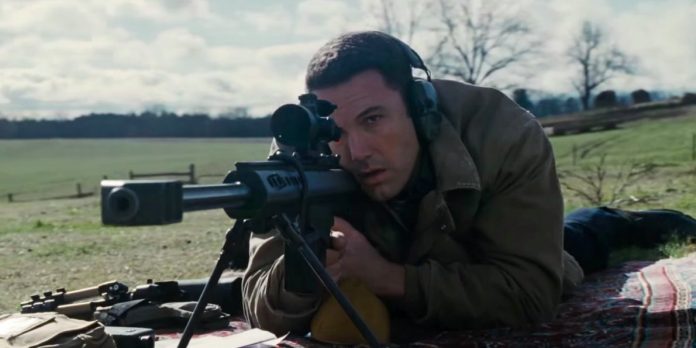Though Gavin O’Connor’s preceding endeavour Jane Got a Gun faced several obstacles to overcome, as one of the more controversial, much-discussed film shoots in recent memory, his latest, The Accountant, seems to have gone far more smoothly and without a hitch – though the results are surprisingly not quite as triumphant, in an overtly dramatic, generic thriller that fails to transcend the tropes of the genre it so affectionately abides by.
Ben Affleck takes a starring role as Christian Wolff, an autistic accountant who illegally does the books for several shady businessmen and crime lords, and those that the Treasury Department’s Crime Enforcement Division are vying to capture, in a case headed up by Ray King (J.K. Simmons) and Marybeth Medina (Cynthia Addai-Robinson). They soon realise that Wolff is something of a common denominator and make him their number one priority – but the elusive presence is difficult to track down. But then he takes on a legitimate client and finds himself drawn into a web of corruption and deceit, inadvertently taking on the role as protector of the accounting clerk Dana Cummings (Anna Kendrick) at the heart of the mess.
It’s exciting to have an autistic lead with such dominance, and the film is crafted in such a way that his condition is like a superpower of sorts, it’s what makes him such a special individual, intelligent and meticulous with it. That said, the screenplay does utilise his dry, to-the-point delivery to make for several conventional one-liners, but any such exploitation in that regard is easy to dismiss given on the whole it’s a positive portrayal of somebody with the disorder. Affleck is perfectly cast in the lead role, for he makes for a wonderful cipher, a pensive, brooding protagonist that allows the action to happen around him, almost working as the viewer’s entry point, our eyes into this murky world – much like he did in Argo. He’s an actor that excels internally, even the case with Batman, and this isn’t supposed to sound as rude as it is – but he performs better without much dialogue.
Regrettably, however, any such understatement the character has is not in any way indicative of the film, which is far too unsubtle in its execution, particularly in the use of superfluous flashbacks that help to illustrate this tale and provide context. Instead it seeks only in disallowing the viewer the chance to use their imagination, as everything feels so spoon-fed, spelt out for us every step of the way. What transpires is a thriller that is all too traditional, not subverting expectations, turning into a by-the-numbers one man versus everybody and anybody narrative in the mould of Taken and John Wick – but this comes without that vital sense of swagger which sets those particular examples apart from the crowd.









